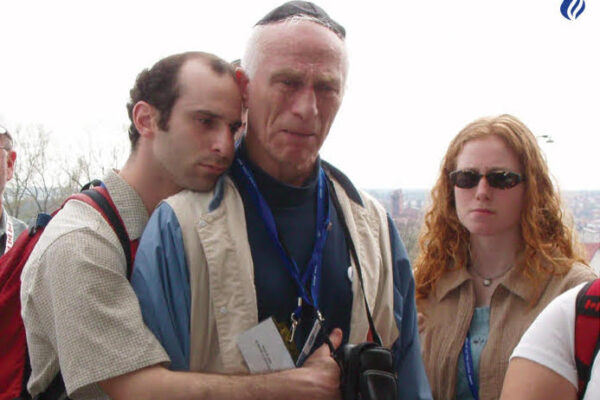
Reinhold Hanning, former Auschwitz guard
June brought two developments of note to the Australian Holocaust survivor community. First, we express our deep sadness at the passing of Masha Zeleznikow, the 89-year-old Holocaust survivor and founder of Café Scheherazade in Melbourne, known for helping Holocaust survivors and other refugees. The second development is the conviction of Reinhold Hanning, a former Auschwitz guard, in Germany.
What makes this conviction noteworthy is that it is the third successful case since Germany’s Nazi prosecution policy underwent a substantial shift. This change occurred in 2011 with the conviction of John Demjanjuk. Historically, German policy only allowed the prosecution of war criminals if the defendant could be linked to a specific crime against a specific victim – a crime that the accused personally committed. In this case, prosecutors successfully argued that Demjanjuk was guilty – even though he was not directly responsible for the killings at Sobibor – because as a guard he was partially responsible.
The success of this case rested on the premise that Sobibor was a death camp, open only for the purpose of mass extermination, making anyone who worked there complicit in the murders that took place. This prosecution opened the door for anyone involved with the six death camps (Auschwitz II-Birkenau, Belzec, Chelmno, Majdanek, Sobibor, and Treblinka) or the Einsatzgruppen mobile killing units to be held accountable.
This continued effort to prosecute Nazis stands in stark contrast to Australia’s record on the issue. To read AIJAC’s previous analysis on this, click here and here. Australia has never extradited, let alone convicted, a Nazi war criminal, even afterinvestigating over 800 cases from 1987-1992. The Hawke Government set up a special investigations unit after it was discovered that hundreds of Nazi war criminals found refuge in Australia and escaped prosecution. Our own Jeremy Jones has been quoted extensively on the subject, criticising the Australian government’s lack of political will to prevent them from entering the country in the 1950s or prosecuting them today. Even though other efforts have been made since then – most famously the Zentai extradition case ending with his death in 2012 and the Kalej case ending with his death in 2001 – none have been successful.
As Germany has continued to find ways to investigate and prosecute Nazi war criminals (and should be commended for this ongoing effort), Australia’s few efforts have been stymied by under-resourcing of investigatory agencies, lack of political will (and broad public interest), and the implications of changing the citizenship law.
However, time is running out even for those most committed to achieving justice. While four cases are scheduled for 2016 in Germany, only Hanning has been convicted. Another has passed away while waiting to stand trial and a third’s trial has been postponed due to illness.
Jens Rommel, the chief public prosecutor at the Central Office of the Judicial Authorities for the Investigation of National-Socialist Crimes in Germany, said that there are around six more cases under investigation and seven more in pre-investigation phases.
While Rommel’s work is scheduled to continue for another decade, it is unlikely it will last much longer than that. By the year 2025, anyone who was 18 at the end of the war would be 98, and almost all of those involved in the camps will have passed away.
Nevertheless, investigation and prosecution of those who participated in the Holocaust must continue – there is still much more to learn. As both those guilty of perpetrating these crimes against humanity and the survivors get older, it is imperative to document what happened. In the face of continued Holocaust denial by individuals and nations, continued prosecution can reveal facts about the atrocities that took place. Far too soon we will see the day when the last of the people who were involved in the Holocaust pass away. By continuing to investigate and try Nazi war criminals in Germany, Australia, and all over the world, a modicum of justice can be given to the remaining survivors before it is too late.
Originally published HERE








